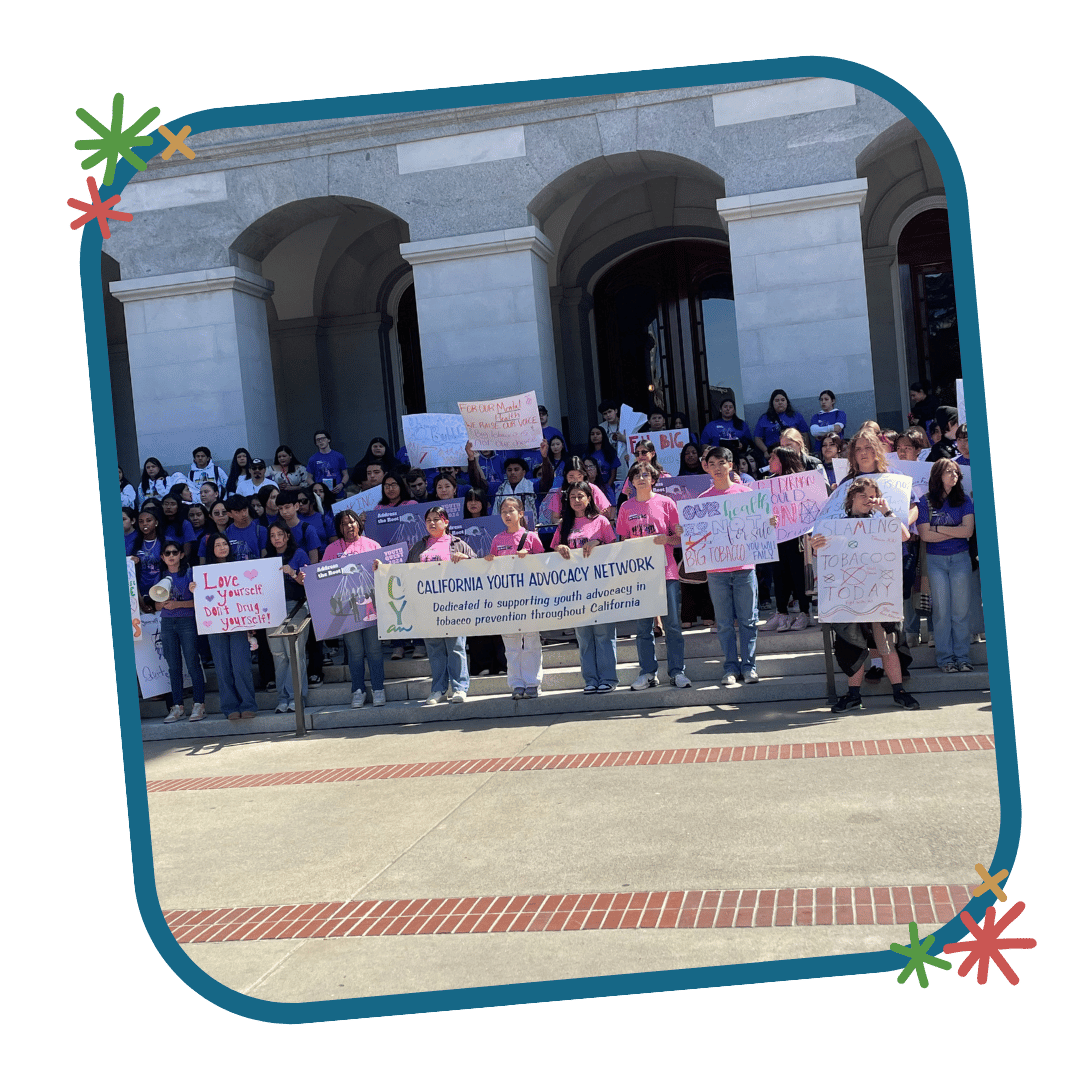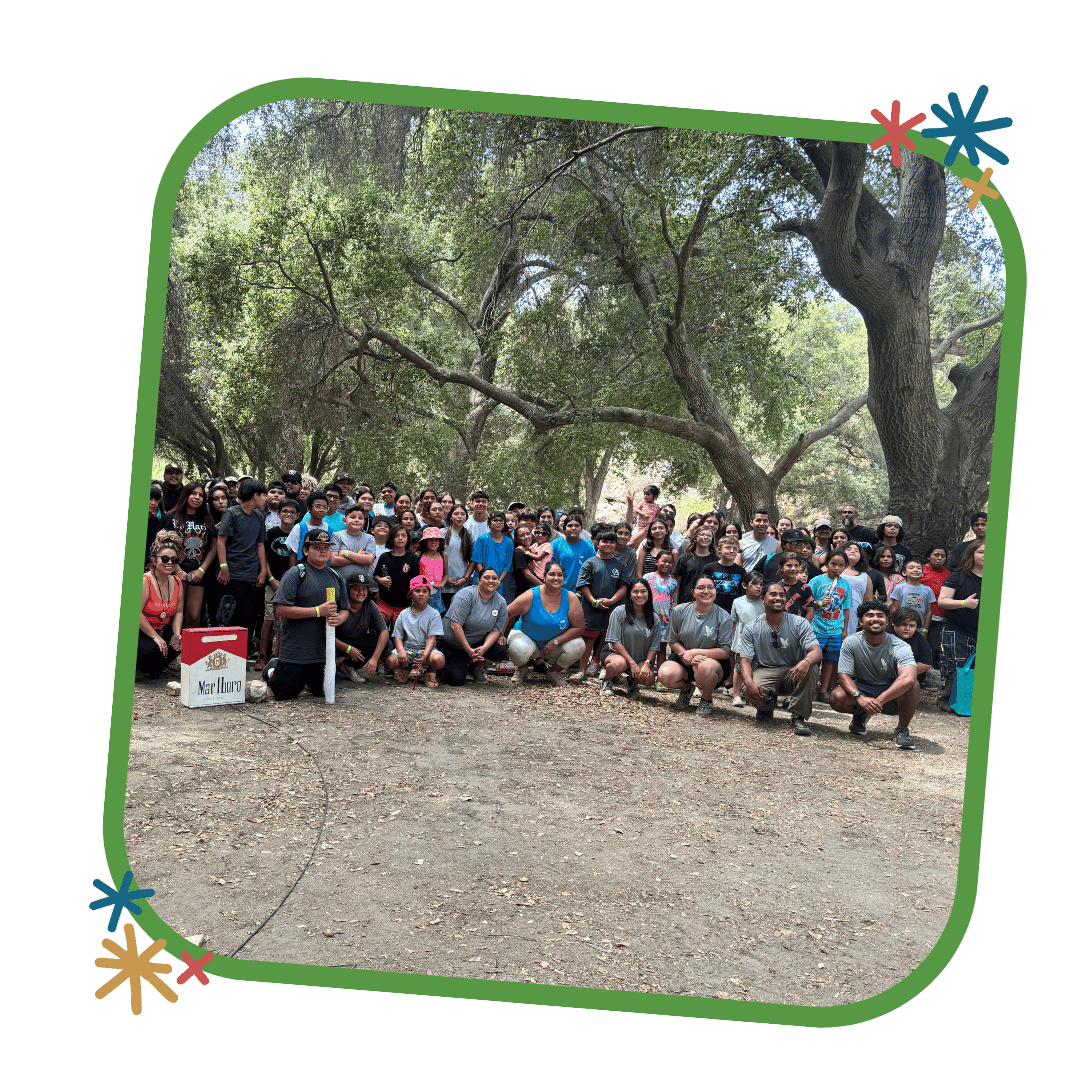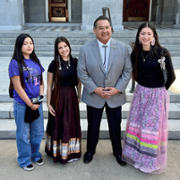Uplifting Youth Engagement within Native Advocacy at ETR
By Annalisa Cortez | August 29, 2024
Project Assistant, TCCC
ETR’s Tribal Community Coordinating Center provides culturally appropriate guidance and assistance to California Indian Tribes to access and implement tobacco related programs. Hear from Annalisa Cortez, Project Assistant, on her experience with youth leadership and advocacy efforts to improve Native health.
I am from the Tule River Band of Yokuts Tribe in the Central Valley, currently residing in Southern California. I am a first-year student at the University of California, Riverside, majoring in Anthropology.
Growing up, I saw firsthand the devastating impact drugs and alcohol can have, especially within the Native community. Traditionally, tobacco is used in many Native cultures for ceremonial purposes, however, the introduction of commercial tobacco and its widespread availability have led to high rates of use and addiction.
Noticing these experiences created a strong desire to bring about positive change in my community. This led me to explore youth advocacy and leadership opportunities as a student Project Assistant for the Tribal Community Coordination Center (TCCC), a project of ETR.
My Project Assistant Role with TCCC
The TCCC Policy Platform declares a vision for policy, system, and environmental changes that Tribes have identified are most important to reducing and eliminating tobacco use and secondhand smoke exposure in their communities.
The primary purpose of the Policy Platform will be to inform local and state partners, stakeholders, and policy leaders about key tobacco-related policy, system, and environmental changes that have been prioritized by Tribes.
My role as a Project Assistant was created as a part of a public health pipeline initiative to build the capacity of future Native community leaders. This has afforded me several opportunities to provide a youth perspective and contribute to building healthier Native communities. My responsibilities include serving the Tribal projects by assisting with youth engagement, running our social media pages, and supporting events.
Youth Advocacy Opportunities in My Role
The opportunity to engage with tobacco prevention in the context of the state government has been pivotal to me. Over the last year, I had the opportunity to join the California Youth Advisory Network (CYAN) and attend events like the annual Youth Summit, Youth Quest, and the Tobacco Prevention Youth Summit.
My experience attending Youth Quest, an annual event hosted by CYAN to celebrate and promote youth advocacy in tobacco control, has been a highlight in my career thus far.  This event was held at the California State Capitol in Sacramento and was an opportunity for youth leaders to take a multifaceted role in engaging participants and promoting tobacco prevention. At Youth Quest, I gave a land acknowledgment to pay respect to the first people of the land we were on and dignify Indigenous resilience.
This event was held at the California State Capitol in Sacramento and was an opportunity for youth leaders to take a multifaceted role in engaging participants and promoting tobacco prevention. At Youth Quest, I gave a land acknowledgment to pay respect to the first people of the land we were on and dignify Indigenous resilience.
In these meetings, Native youth delivered short speeches explaining why preventing tobacco use is crucial for their health and well-being before leading a march to the California State Capitol. This demonstration amplified their advocacy efforts by promoting tobacco prevention measures and bringing awareness to the cause among lawmakers and the public.
CYAN’s annual statewide youth advocacy conference was held at a retreat in the scenic Santa Cruz mountains this year. I engaged in a comprehensive learning experience by practicing public speaking, researching, compiling relevant data, role-playing interactions with decision-makers, and crafting effective messaging. The event culminated on the final day with a simulated Tribal Council and Board of Supervisors activity.
These exercises and the activities leading up to them were a powerful experience. The inclusion of the Tribal Council policy activity allows Native youth to engage with legislative issues in a meaningful way, reflecting their cultural and community values.
Learnings from Native Youth Advocacy
Although these were excellent learning opportunities, some of the Tribal attendees expressed discomfort that the events were not acclimated to their experience as Indigenous peoples and lacked engaging activities specific to them. Tribal youth felt the events could’ve been more relevant by including topics other than tobacco prevention. As Native people, it can often be difficult to navigate representation in non-Native spaces. The Tribal youth did an admirable job at expressing this, which only leads to more growth.
activities specific to them. Tribal youth felt the events could’ve been more relevant by including topics other than tobacco prevention. As Native people, it can often be difficult to navigate representation in non-Native spaces. The Tribal youth did an admirable job at expressing this, which only leads to more growth.
I have been excited to participate in multiple opportunities for youth engagement as a Project Assistant, as I believe it is crucial for adult leaders to dedicate time and resources to developing future leaders in Tribal public health and Native community wellness. By doing so, we ensure there are no gaps in leadership and that our communities can develop and implement policies addressing their specific needs and priorities.
Annalisa Cortez (she/her) is currently serving as a Project Assistant for the Tribal Community Coordination Center, a project of ETR, and upcoming speaker for YTH Live Global conference—a free event focused on the intersection of youth, tech and health. She is from the Tule River Band of Yokuts Tribe in the Central Valley and lives in Southern California. She is in her first year at the University of California, Riverside, and plans to major in Anthropology.




